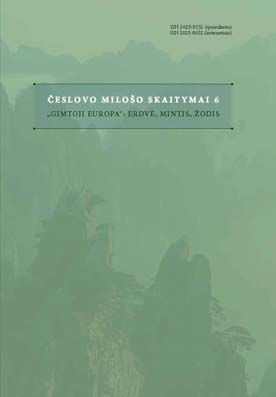Šiuolaikinės Švedų literatūros recepcija Lietuvoje
The Reception of Contemporary Swedish Literature in Lithuania
Author(s): Aurelija MykolaitytėSubject(s): Literary Texts
Published by: Vytauto Didžiojo Universitetas
Keywords: Reception; contemporary Swedish literature; cultural communication; translations interpretations
Summary/Abstract: The article discusses the horizons of perception of Swedish literature through translations in Lithuania in last decade. Quite numerous translations of Swedish literature witness an active cultural exchange between Lithuania and Sweden. The titles of published translations during the last decade show the following tendencies: 1) though classical authors have not been forgotten, but more and more attention has lately been paid to contemporary literary works, especially novels; 2) the interest in women’s writing is obviously growing: many new and unknown works have been translated; 3) a great variety of the translations of Swedish children’s literature – both classical and modern works – has been published so far. It is also noteworthy that the translations are of exceptional quality and a number of translators are capable of doing a Professional translation from Swedish. With regard to the translations, the article focuses on the cultural communication and dialogic relationship as discussed in Yuri Lotman’s works; the research is also based on the insights by Lithuanian semiotician A. J . Greimas and phenomenologist Algis Mickūnas. The idea that cultural communication promotes the understanding of the “other” is particularly well revealed by Irvis Scheynius’ prose and poetry, reflecting his double – Lithuanian and Swedish – identity. In his works the double identity is perceived not as provoking hostility but rather as showing alternatives and creating the consciousness capable to compare and combine. Witnessing the possibility of understanding each other (as it is the relationship of the self and the “other” that helps to overcome isolation and create new structures of meanings) the writer continues his father’s – Ignas Šeinius, – mission started in Sweden in 1917. As contemporary Swedish literature becomes better known through translations in Lithuania there is an attempt among Lithuanian literary scholars to talk not only about differences between the two NATIONAL literatures, but also about their closeness. However, another culture, no matter how seemingly close, refuses to be completely translated and is only a “promise of translation”.
Journal: Česlovo Milošo skaitymai
- Issue Year: 2013
- Issue No: 6
- Page Range: 25-34
- Page Count: 10
- Language: Lithuanian

